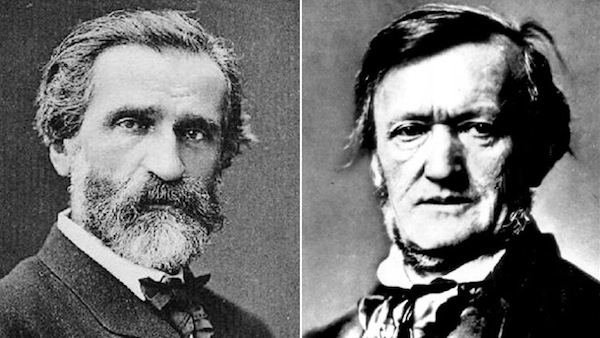
Florida Grand Opera: A promising 2013-14 season announced
By Sebastian Spreng, Visual Artist and Classical Music Writer
Susan Danis wasn’t joking when she said, “This Florida Grand Opera 2012-13 season is one of transition.” The new CEO of FGO is keeping her promise, announcing a 2013-2014 opera season sure to spark more than one controversy and elicit applause from the many patrons who look forward to a revitalization of the company’s repertoire.
The season will open at Fort Lauderdale’s Broward Center with an American masterpiece that only now premieres in the South: Marvin David Levy’s Mourning Becomes Electra. The choice is a well-deserved tribute to the octogenarian composer, who lives in Fort Lauderdale and whose opera, based on Eugene O’Neill’s play of the same name, established in 1967 at its Metropolitan Opera premiere the American reputation of a then already internationally renowned Evelyn Lear.
Based on Sophocles’ tragedy and The Oresteia by Aeschylus, the opera shifts the Greek myth to the American Civil War. As scenario, the New England Mannon/Mycenae house where King Agammenon is now General Ezra Mannon and Aegistus is Captain Brant. Lear played the manipulative Lavinia, modeled on Electra, at odds with her mother, Christine/Clytemnestra, as she awaits the homecoming of her brother Orin/Orestes. The production opened at the Met in 1967, directed by no less than Michael Cacoyannis (of Zorba the Greek fame) and conducted by Zubin Mehta. Also memorable was the 1947 film version of the play, which had Rosalind Russell facing off against Katina Paxinou, the legendary Greek tragedian. Still a mystery is who will be filling the shoes of those greats of the past capable to incarnate both Freudian complexes (Electra and Oedipus) in the same opera. Another intriguing challenge for FGO’s new production.
FGO will also commemorate Verdi and Wagner’s bicentennials, joining in the worldwide celebration justly honoring the two colossuses of the genre. An early work that established the reputation of the young Verdi and an essential part of his legacy, plenty of political and religious undertones Nabucco deals with the Jews Babylonian exile and foreshadows the scenic and choral lavishness of Aïda. Its famous chorus of the Hebrew slaves, “Va pensiero”, was sung spontaneously at the composer’s funeral as endearing tribute for this unofficial anthem in Italy’s Risorgimento times.
From the other side of the Alps, Wagner will be represented in the long-in-coming Florida premiere of Tristan und Isolde, the musical drama that changed the history of music with the introduction of the “Tristan chord,” the starting point of modern composition. A vehicle for Wagner’s infatuation for Mathilde Wesendonck – the wife of his patron – it transformed the Celtic legend into opera’s greatest epic song of thwarted love, whose denouement is the “Death of Love”( Liebestod.)
Last but not least, another fiery passion, bloodier and more familiar, concludes the season with spice “alla Romana”: Puccini’s temperamental Tosca.
It’s a season of excitement that promises a change of direction for FGO’s repertoire as interesting as it is necessary, combining essential classics with tradition and modernity. A vote of confidence and support for the plans of general director Susan Danis and musical director Ramón Tebar, both worthy of early and well-deserved bravi!
Recent Content
-
Artsarticle ·
-
Artsarticle ·
-
Artsarticle ·

